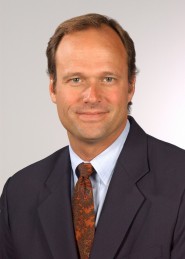
By Andy Hoffman, Holcim (US) Professor of Sustainable Enterprise, University of Michigan
The responsibility we face as individuals and as a society to steward our planetary ecosystem represents the great challenge of today’s generation, and possibly the greatest challenge of any generation. The environmental theologian Thomas Berry has called it The Great Work:
”The success or failure of any historical age is the extent to which those living at that time have fulfilled the special role that history has imposed upon them. No age lives completely unto itself. Each age has only what it received from the prior generations. The Great Work before us, the task of moving modern industrial civilization from its present devastating influence on the Earth to a more benign mode of presence, is not a role that we have chosen. It is a role given to us, beyond any consultation with ourselves.. We are, as it were, thrown into existence with a challenge and a role that is beyond any personal choice. The nobility of our lives, however, depends upon the manner in which we come to understand and fulfill our assigned role.”[i]
That great challenge is now yours. The previous generation left the present and future generations with new problems that may seem insurmountable and new solutions that at times seem to be half measures. We can now see more clearly that the “more benign mode of presence” that Berry asked us to seek for ourselves on the Earth must nonetheless be an active mode, one that works in harmony with nature, seeking to positively steward environmental systems rather than simply lessening our impact. Where Berry saw environmental insults at the close of the 20th century, we now see unavoidable environmental control within the age of the Anthropocene.
It is a completely different context, and the current generation has every right to be angry at this Great Work being thrust upon them. That said, there is no choice but to respond and do not have the luxury of asking if our response will work, for we are at a place in human history never before seen. We don’t know the answers or often even how to construct the answers, but we must try. The “nobility of our lives” will be determined by that effort.
…This is why I urge you not only to find your calling in one or another aspect of business, with all the personal satisfaction and reward that may bring, but to seek that vocation in sustainable or “green” business. For the foreseeable future, business will be — must be — inseparable from the concept of sustainability, if the human project on Earth is to endure. The most exciting and important changes to how business is done will take place in this new context, and there will be tremendous opportunities for the creativity, leadership, deep thought, and committed effort that give meaning to a life’s work.
How can we help move business in a mid-course correction that aims toward a more sustainable economy? The first step is to link environmental stewardship to the existing market metrics and logic — to frame the issue as a market shift, and one that is driven by standard business concerns for consumer demand, operational efficiency, and cost of capital. This can be termed “enterprise integration,” and it’s what companies are looking for today.
But the second and more important step is to recognize that the circumstances in which the economy operates are fundamentally different today than we understood them to be in the past. We have entered the Anthropocene, a new geological epoch in which human activity is recognized to play a significant role in the Earth’s operating systems. We, as a species, have grown to such numbers, and our technology has grown to such power, that we are no longer merely drawing resources from our environment; we are altering and influencing the ecosystem on a planetary scale. This shift demands a change in societal views of not only the natural world and the human place within it, but of our need to collaborate on global problems. More directly, it demands a change in how markets are structured, and directs our efforts towards what can be termed “market transformation.” While an understanding of enterprise integration can help you get your first job, a focus on market transformation can help you focus on the real solutions to our environmental problems over a lifetime. It will guide your life’s work.
Given the way we have arranged human life on Earth, the central organizing structure for taking a positive place within the Anthropocene is the economic market. Never forget, the market is the most powerful institution on the planet, and business the most powerful entity within it. Businesses can transcend national boundaries and often possess resources that exceed those of many countries. You might lament that fact, but it is a fact. If business does not lead the way toward solutions for an environmentally sustainable, carbon-neutral world, there will be no solutions.
… The market must, and will, adjust to recognize the global nature of the issues we face. The next iteration of sustainable business practices, moving from enterprise integration to market transformation, will establish new norms of social and environmental behavior on a global level, translate those norms to the national and local levels, and develop solutions that are systemic in nature, rather than collections of siloed approaches. The end result will be shared but differentiated responsibilities for restoring the damages wrought by the past century of economic growth. This is not an assault on business; it is a shift in business as usual, as replete in market opportunities as any other form of disruption. It is the kind of atmosphere in which people in business have always rolled up their sleeves and gotten to work.
The above is an extract from Andy’s new book, Finding Purpose – Environmental Stewardship as a Personal Calling, published by Greenleaf Publishing. EcoInnovator readers can enjoy 10% off the book using the discount code FP10 on Greenleaf’s website: http://www.greenleaf-publishing.com/finding-purpose
[i] Berry, T. (2000). The Great Work: Our Way into the Future. New York, NY: Bell Tower.
____________

Andy Hoffman is the Holcim (US) Professor of Sustainable Enterprise; a position that holds joint appointments at the School of Natural Resources & Environment and the Ross School of Business. He also also serves as education director of the Graham Sustainability Institute. His research focuses on corporate strategies that address environmental and social issues. His disciplinary background lies in the areas of organizational behavior, institutional change, negotiations and change management. He has published more than 100 articles and eleven books, two of which have been translated into five different languages. Prior to academics, he worked for the US Environmental Protection Agency, Metcalf & Eddy, the Amoco Corporation, and T&T Construction and Design, Inc. In 2004, he was a Senior Fellow with the Meridian Institute.
